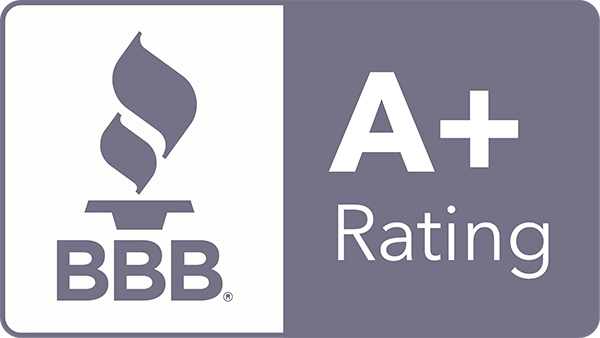HVAC Maintenance
Below is a guide to maintaining your central air units to prolong their life and overall effectiveness.
How do I maintain my central air units?
Homeowners can do the following things::
- Inspect the thermostat for proper operation.
- Check and replace the air filter every 1-3 months.
- Inspect and clean the evaporator and condenser coils.
- Clear debris from around the outdoor unit.
- Inspect all electrical components and controls.
- Ensure proper airflow by inspecting the ductwork for blockages.
Frequently Asked Questions (FAQs)
Find common problems related to heating, air conditioning, thermostats, air cleaners, and flow-thru humidifiers, along with expert tips on how to resolve them.
Air Conditioning
- Check the main electrical panel and any secondary circuit panels for a tripped breaker or blown fuse. If the problem is found there, reset the breaker by turning it off and replace the fuse. If the breaker continues to cause problems, the problem likely exists in the system's fan, capacitor, or motor.
- Make sure the thermostat is set to 'COOL' and at least 3 degrees below the current room temperature.
- Make sure the power is on. Check the switch in the furnace and the outdoor condenser.
- Remove the cover on the thermostat after powering off the air conditoner. Remove the body of the thermostat and make sure all the wires are connected properly and replace the batteries (if the thermostat takes batteries). Replace the cover on the thermostat and wait 5 minutes before turning it back on.
- Finally, check the compressor's wires and capacitor. The capacitor in the compressor starts the blower fan. If your compressor's capacitor has failed, the air conditioner will not run.
- Turn off the power to the air conditioning air handler or the power to the furnace. If the air handler is a gas furnace, turn off the gas valve.
- Remove the door on the air-handler unit so that you can access the air filter. Remove the filter and clean it or replace it if required.
- Look for icon aroun the coils. If you do see or feel ice, close the unit up, turn the power back on to the unit, and then turn on the fan from the thermostat. The ice will take a few hours to melt. Will it's unthawing, keep the fan on and don't run the unit. After the ice has melted, turn the unit back on.
Central Heating
- Be sure nothing is blocking the flow of air.
- Be sure the thermostat is set to 'HEAT' and that the blower fan is set to 'ON' or 'AUTO'. Make sure the thermostat is set to 5 degrees above the room temperature.
- Make sure to check that the registers in all rooms are open and are not blocked.
- Check the filter and make sure that it doesn't need to be cleaned or replaced. A dirty filter will reduce the efficency of a furnace.
- If those steps don't fix the problem, contact us to inspect the blower or to see if the system is out of balance.
- Check the main electrical panel and any secondary circuit panels for a tripped breaker or blown fuse. If the problem is found there, reset the breaker by turning it off and replace the fuse. If the breaker continues to cause problems, the problem likely exists in the system's fan, capacitor, or motor.
- Make sure the thermostat is set to 'COOL' and at least 3 degrees below the current room temperature.
- Make sure the power is on. Check the switch in the furnace and the outdoor condenser.
- Remove the cover on the thermostat after powering off the air conditoner. Remove the body of the thermostat and make sure all the wires are connected properly and replace the batteries (if the thermostat takes batteries). Replace the cover on the thermostat and wait 5 minutes before turning it back on.
- Finally, check the compressor's wires and capacitor. The capacitor in the compressor starts the blower fan. If your compressor's capacitor has failed, the air conditioner will not run.
Thermostat FAQs
Most thermostats last 10-15 years. If your thermostat is causing inconsistent temperatures or you’re upgrading to a smart model, it may be time to replace it. Longmont residents may also benefit from modern thermostats that are energy-efficient and offer better temperature control.
Smart thermostats offer features like remote temperature control, programmable schedules, and energy usage tracking. This can reduce energy costs for homeowners in Longmont while enhancing home comfort and control.
If your thermostat isn’t responding, first check the batteries or power source. Ensure the thermostat is clean and wires are connected properly. If the issue persists, contact us for thermostat repair services in Longmont.
Air Cleaner FAQs
Installing an air cleaner helps reduce airborne allergens, dust, and even bacteria, leading to better indoor air quality. For Longmont residents, this is especially helpful during wildfire season and peak pollen periods.
For optimal performance, air cleaner filters should be cleaned or replaced every 6 to 12 months, depending on the manufacturer’s recommendations and your home’s air quality.
Flow-Thru Humidifier FAQs
A flow-thru humidifier helps maintain proper humidity levels in your home, which can reduce dryness, protect wood furniture, and improve indoor air quality during Longmont’s dry winters.
We recommend annual maintenance for your flow-thru humidifier. This includes cleaning or replacing the water panel and checking for proper water flow to ensure optimal performance during the winter months in Longmont.
If you unable to find the answer please contact us and we will aim to respond quickly.





